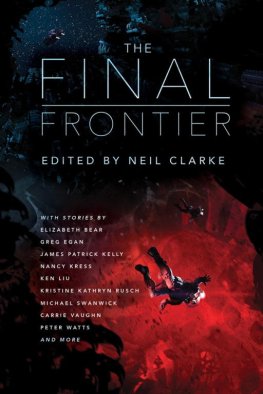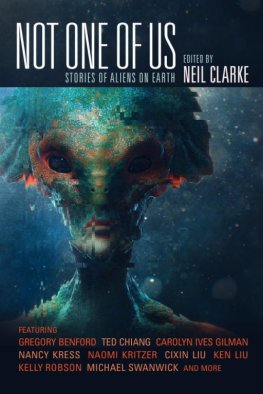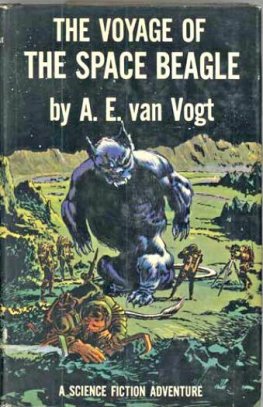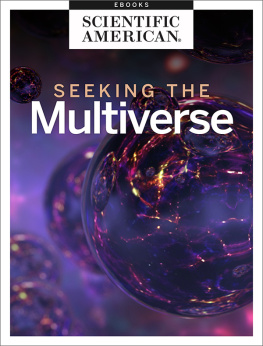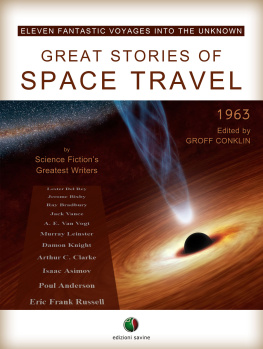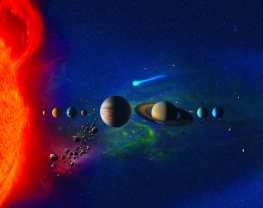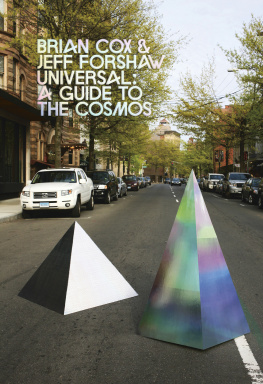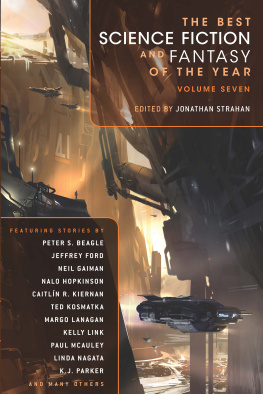THE FINAL FRONTIER
STORIES OF EXPLORING SPACE, COLONIZING THE UNIVERSE, AND FIRST CONTACT
Edited by Neil Clarke

I consider this anthology to be a sister to Galactic Empires, which was published last year. During the preliminary reading for that project, I came across several great stories that werent quite right for the anthology, typically because the empire element was non-existent or too thin. As that list continued to grow, a theme began to develop around them: space exploration and discovery. If Galactic Empires was Star Wars, this anthology is all those standalone episodes of the various Star Trek series where they discover some new phenomena, make contact with a new species, or explore the remnants of some long forgotten race.
Gene Roddenberry provided the perfect way to describe those stories in the opening of the original Star Trek back in 1966: Space: the final frontier. When the first episode of that series aired, we were still three years away from Neil Armstrongs first steps on the moon. It was a show born of an age when we were reaching for the stars and despite being canceled before that moon landing, the show has carried on in new series, movies, books, and fan projects for over fifty years even while the era of manned space exploration has waned. Shows like Star Trek, as well as books and stories like those in this anthology, keep the dream alive.
I was born the same year that Star Trek first aired. Im told I was in front of the TV while Armstrong bounced along the surface of the moon, but I was far too young to remember, but I am a child of that era. Someday we would go to the stars and I would live to see it. As a child, we visited Kennedy Space Center and saw the massive Saturn V rocket, reality boosting that sense of awe. The vertical stabilizer of the first space shuttle poked out from behind the wall it was hidden behind and just that tiny glimpse was enough to send my imagination soaring. We were going, but maybe not as soon as my favorite books and movies predicted.
We sent probes out to fly by or land on other planets in our solar system. Even the early, grainy images brought awe and inspiration. In school, these discoveries were turned into educational opportunities and we learned the dangers of space. As reality intruded, my expectations took steps backward. Space was more inhospitable than it was in books and TV. We were not well-prepared enough to leave our home. More research was necessary, but budgets were shrinking and priorities changed. While there have been many amazing accomplishments and discoveries made by our astronauts and scientists in the time since, that no one has returned to the moon since 1972 is still very disappointing.
Most recently, wealthy individuals and companies have been investing heavily in and pioneering space-related industries. I couldnt help but think back to old novels and stories when Elon Musks SpaceX managed to safely land the first stage of their rocket back on Earth. Obviously, reusing these expensive pieces of hardware make economic sense, but despite that iconic imagery, it had never been done before. In interviews, he freely admits to being influenced by science fiction books, films, and TV. In many ways, you can see that science fictional spirit in SpaceXs approach. With Musk at the helm, they have declared their intention to send a manned mission to Mars in the mid-2020s.
You want to wake up in the morning and think the future is going to be greatand thats what being a spacefaring civilization is all about. Its about believing in the future and thinking that the future will be better than the past. And I cant think of anything more exciting than going out there and being among the stars. Elon Musk
Even if these plans should fail or be delayed, the energy and enthusiasm being brought back to the table is a good thing. It helps shape public opinion and will inspire a new generation to believe that theyll be the ones who get visit another world. It can help direct much-needed funding into technologies that will help us achieve those goals and along the way, potentially provide solutions to problems we have right here and right now on Earth, be it medical, environmental, or simply improve our quality of life.
I may never visit another planet, but perhaps my children, or their children will. In the meantime, Ill have to be satisfied to continue my exploration of the final frontier through stories like these, while the astronauts, scientists, robots, and innovators do the real world work that will take us there someday. And if something here inspires you, well, Im honored to have played a small role in keeping that dream alive for you.
A JAR OF GOODWILL
TOBIAS S. BUCKELL
Tobias S. Buckell is a New York Times bestselling author born in the Caribbean. He grew up in Grenada and spent time in the British and US Virgin Islands, which influence much of his work. His novels and over fifty stories have been translated into eighteen different languages. His work has been nominated for awards like the Hugo, Nebula, Prometheus, and the John W. Campbell Award for Best New Science Fiction Author. He currently lives in Bluffton, Ohio with his wife, twin daughters, and a pair of dogs. He can be found online at www.TobiasBuckell.com.
POINTS ON A PACKAGE
You keep a low profile when youre in oxygen debt. Too much walking about just exacerbates the situation anyway. So I was nervous when a stationeer appeared at my cubby and knocked on the door.
I slid out and stood in front of the polished, skeletal robot.
Alex Mosette? it asked.
There was no sense in lying. The stationeer had already scanned my face. It was just looking for voice print verification. Yes, Im Alex, I said.
The harbormaster wants to see you.
I swallowed. He could have sent me a message.
I am here to escort you. The robot held out a tinker-toy arm, digits pointed along the hallway.
Space in orbit came at a premium. Bottom-rung types like me slept in cubbies stacked ten high along the hallway. On my back in the cubby, watching entertainment shuffled in from the planets, they made living on a space station sound exotic and exciting.
It was if you were further up the rung. Id been in those rooms: places with wasted space. Furniture. Room to stroll around in.
That was exotic.
Getting space in outer space was far down my list of needs.
First was air. Then food.
Anything else was pure luxury.
*
The harbormaster stared out into space, and I silently waited at the door to Operations, hoping that if I remained quiet he wouldnt notice.
Ops hung from near the center of the megastructure of the station. A blister stuck on the end of a long tunnel. You could see the station behind us: the miles-long wheel of exotic metals rotating slowly.
No gravity in Ops, or anywhere in the center. Spokes ran down from the wheel to the center, and the center was where ships docked and were serviced and so on.
So I hung silently in the air, long after the stationeer flitted off to do the harbormasters bidding, wondering what happened next.
Youre overdrawn, the harbormaster said after a needle-like ship with long feathery vanes slipped underneath us into the docking bays.
He turned to face me, even though his eyes had been hollowed out long ago. Force of habit. His real eyes were now every camera, or anything mechanical that could see.
The harbormaster moved closer. The gantry around him was motorized, a long arm moving him anywhere he wanted in the room.

